detail profile wilson das neves

Riwayat Hidup
Wilson das Neves (June 14, 1936 – August 26, 2017) was a Brazilian percussionist and singer from Rio de Janeiro, Brazil.
He was a key figure in the history of Brazilian music, having played with many of Brazil's greatest musicians across many decades and featured on numerous important recordings.
Wilson was a very important artist specially for Brazilian popular music as a sambista, composer, and instrumentalist, with over 50 years dedicated to music.
He can be heard in over 600 records from major Brazilian artists.
Info Pribadi
Peran Yang Di Mainkan Wilson das Neves
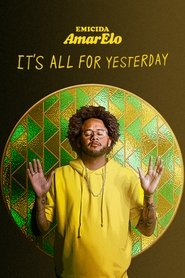 Between scenes from his concert in...
Between scenes from his concert in...Emicida: AmarElo - It's All for Yesterday 2020
Between scenes from his concert in São Paulo's oft-inaccessible Theatro Municipal, rapper and activist Emicida celebrates the rich legacy of Black Brazilian culture.
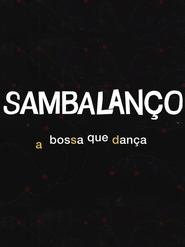 During the 1960s between nightclubs in...
During the 1960s between nightclubs in...Sambalanço - A Bossa Que Dança 2020
During the 1960s, between nightclubs in the South Zone and dances in the suburbs of Rio de Janeiro, a musical rhythm known as sambalanço emerged, mixing jazz, samba and Latin music.
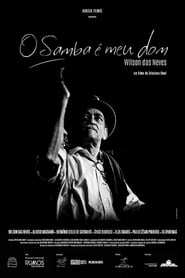 Between 2009 and 2012 filmmaker Cristiano Abuds team...
Between 2009 and 2012 filmmaker Cristiano Abuds team...O Samba é Meu Dom 2018
Between 2009 and 2012, filmmaker Cristiano Abud’s team followed the Brazilian samba musician Wilson das Neves. The result is this documentary, which recaptures the trajectory of Wilson, considered the greatest samba drummer of the 20th century.
 Chico Buarque is a constant presence...
Chico Buarque is a constant presence...Chico: Brazilian Artist 2015
Chico Buarque is a constant presence in Brazil's art scene and makes up its citizen's popular culture. This wealth in music, poems, theater and novels has been created over the last 50 years and in this film Chico Buarque converses about his memories, shows, daily life, work methods, creative process, in summary all his trajectory. The musician’s search for his German brother, whom he never got to meet, serves as one of the axis for the narrative.
 Five years after his last tour...
Five years after his last tour...Chico Buarque: Na Carreira 2012
Five years after his last tour, Chico Buarque returns with a show to launch his newest CD, Chico, which has already sold over 80,000 copies. Despite having one of the most solid and prolific careers in Brazilian Popular Music (MPB) — releasing more than 40 albums over 45 years, including solo works and projects — the composer rarely appears on Brazilian stages. This will be only the sixth show he has performed in the last 36 years. Lasting approximately 1 hour and 30 minutes, the setlist is built entirely around the ten songs from the new album. In addition to these, the artist sifted through his vast catalog of over 400 songs—diverse in both genres and themes—to finalize a list of 30 tracks. The project, titled Na Carreira, is a celebration of this great artist’s return to the stage, revisiting classics such as Todo Sentimento, Bastidores, Baioque, O Meu Amor/Teresinha, Anos Dourados, among others.
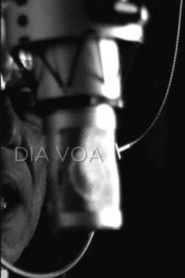 Dia Voa is a documentary that...
Dia Voa is a documentary that...Dia Voa 2011
"Dia Voa" is a documentary that follows Chico Buarque during the recording of his album, capturing exclusive interviews and unseen footage. It was his first album integrated into digital platforms during the promotional process. In just over an hour, the film showcases the conception and production of the album—from Chico’s return to songwriting after a period dedicated to literature (during which he released Leite Derramado, winner of the 2010 Jabuti Award for Best Fiction Book) to the final product.
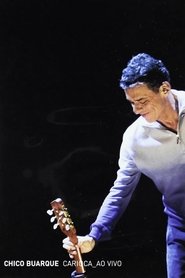 Carioca Chico Buarques first DVD of...
Carioca Chico Buarques first DVD of...Chico Buarque: Carioca – Ao Vivo 2007
“Carioca,” Chico Buarque’s first DVD of original songs since As Cidades (1998), features musical direction and arrangements by Luiz Cláudio Ramos and production by Vinícius França. The repertoire includes the choro-canção Subúrbio and Sempre, a track composed for the film O Maior Amor do Mundo, among others. In this work, the artist speaks about his city with the youthful spirit reminiscent of the age when he first earned his famous nickname. Voltei a Cantar / Mambembe / Dura na Queda / O Futebol / Morena na Angola / Renata Maria / Outros Sonhos / Imagina / Porque Era Ela, Porque Era Eu / Sempre / Mil Perdões / A História de Lily Braun / A Bela e a Fera / Ela É Dançarina / As Atrizes / Ela Faz Cinema / Eu Te Amo / Palavra de Mulher / Leve / Bolero Blues / As Vitrines / Subúrbio / Morro dos Irmãos / Futuros Amantes / Bye Bye Brasil / Cantando no Toró / Grande Hotel / Ode aos Ratos / Na Carreira / Deixe a Menina / Sem Compromisso / Quem Te Viu, Quem Te Vê / João e Maria
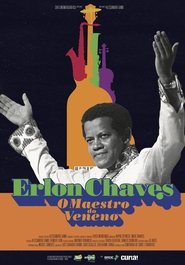
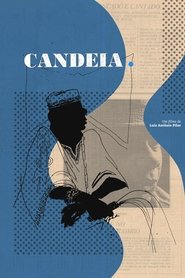 The life and work of the...
The life and work of the...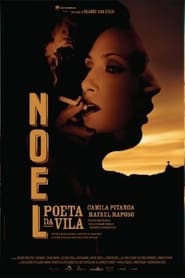 The biopic of Noel Rosa one...
The biopic of Noel Rosa one...